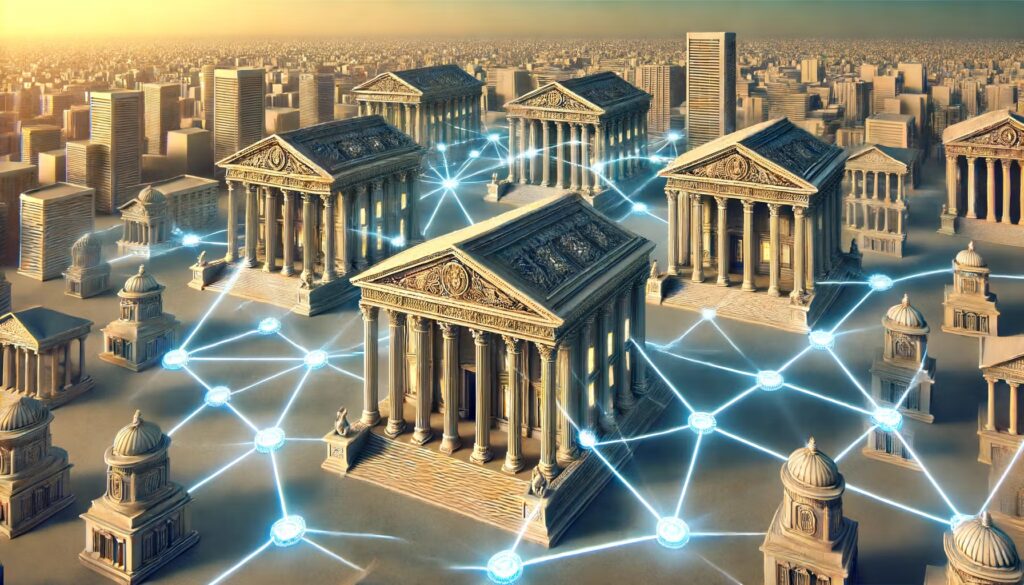Decentralization is often discussed in the context of blockchain or cryptocurrency, but at its core, it’s a philosophy. It challenges the idea that power must always sit at the top and instead distributes it among people.
Why Decentralization Matters
- Freedom: No single authority controls the system.
- Transparency: Rules are open and visible.
- Empowerment: Individuals gain control over their identity, assets, and choices.

Beyond Money
While Bitcoin and Ethereum are clear examples, decentralization also applies to governance (DAOs), media (open-source publishing), and even education (peer-to-peer learning).
A Shift in Thinking
Traditional systems thrive on hierarchy. Decentralization reimagines society as networks instead of pyramids. It doesn’t eliminate leaders, but it reduces gatekeeping.
In a world where technology often centralizes power, the philosophy of decentralization reminds us of something timeless: freedom is best preserved when it is shared.